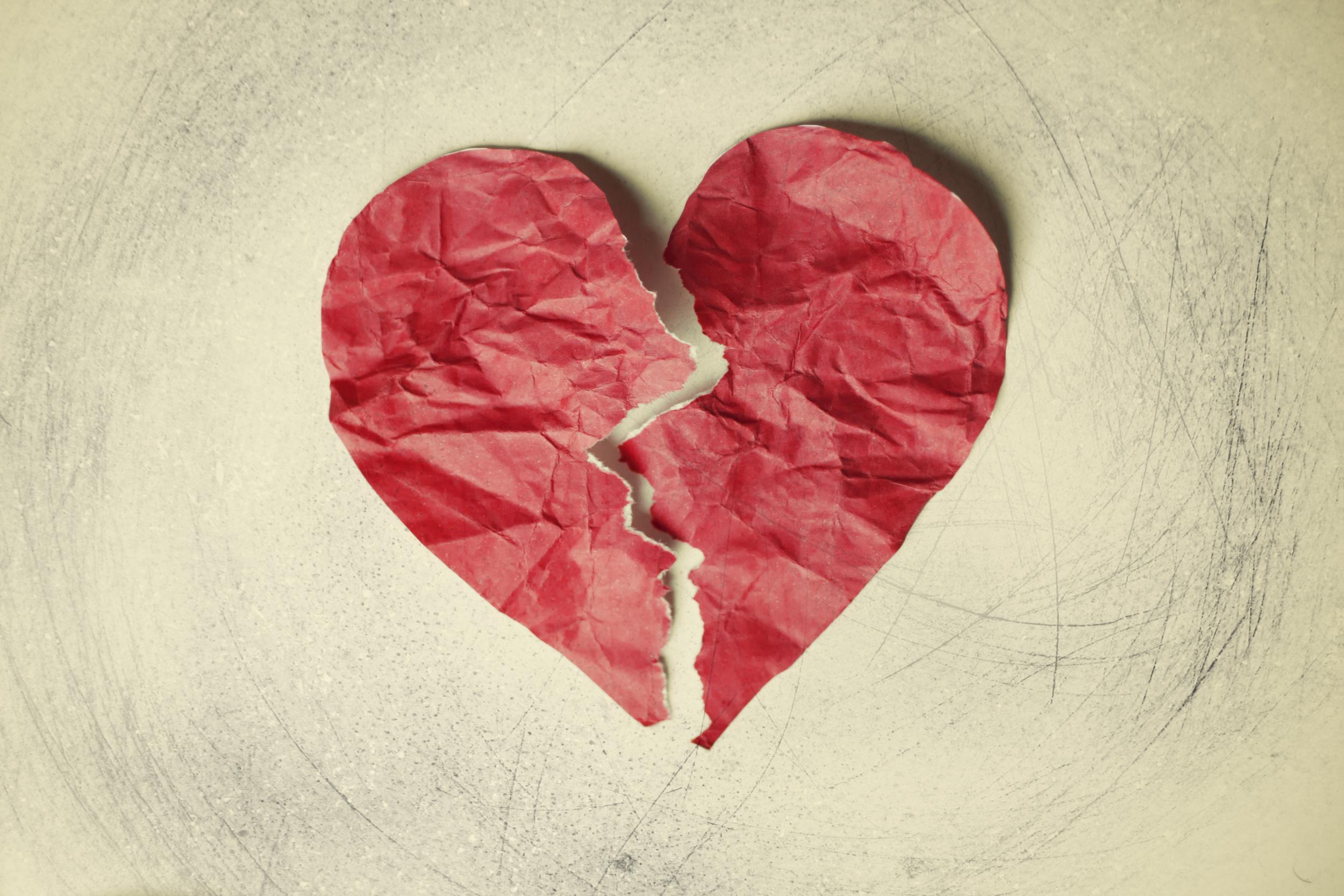'Broken heart syndrome' is real, according to a cardiologist
The syndrome predominately affects women

In what may be the saddest news, it turns out you can die of a broken heart.
If you’ve ever gone through a heartbreak, you’ll remember the pain and sadness that can accompany it. It may even have felt like your heart was broken in half.
Although the heart doesn’t crack in two like the red caricature that comes to mind, hearts can actually “break” in response to an intense emotional pain or stress.
The phenomenon of “broken heart syndrome,” also known as Takotsubo cardiomyopathy or stress cardiomyopathy, was discovered in 1990 in Japan - and predominantly affects women.
What is Broken heart syndrome?
According to Dr Nicole Harkin, a cardiologist and clinical assistant professor at New York University, who spoke to The Independent: “Broken heart syndrome occurs when a person’s heart pump function temporarily decreases in response to intense physical or emotional stress.”
"It is not fully known why it occurs but it is suspected to be due to the detrimental effects of a sudden catecholamine surge," she said.
In response, the heart's main pumping chamber, the left ventricle, is weakened, according to Harvard University Medical School.
A broken heart can be difficult to diagnose as the symptoms are almost identical to that of a heart attack, including “chest pain or shortness of breath,” according to Dr Harkin.
However, a broken heart differs from a heart attack because “there is no evidence of blockage in a coronary artery on angiography,” said Dr Harkin. “It also has a typical appearance on an echocardiogram (sonogram of the heart).”
What causes broken heart syndrome and who suffers from it?
Break-ups or heartbreaks are one possible cause, in addition to high-stress situations such as arguments, natural disasters, or the death of a loved one.
And the syndrome is more common than previously thought, as doctors continue to research “broken” hearts.

“Although rare, it is more common than previously suspected and occurs more often in women and the elderly,” said Dr Harkin.
According to Harvard University Medical School, 90 per cent of these cases are typically women between the ages of 58 to 75 - and research suggests 5 per cent of women evaluated for a heart attack actually suffer from this disorder.
Can you die from broken heart syndrome?
In most cases, Dr Harkin told us: “People typically recover and their hearts return to normal in several weeks.” Dr Harkin also said people "rarely" die from it.

But in severe cases, broken heart syndrome can lead to sudden death, with heart failure occurring in about 20 per cent of patients, according to Harvard University Medical School.
The syndrome can also lead to long-term effects on heart health.
Sometimes in matters of the heart, chocolate and crying are not enough to heal your broken heart.
Join our commenting forum
Join thought-provoking conversations, follow other Independent readers and see their replies
Comments
Bookmark popover
Removed from bookmarks